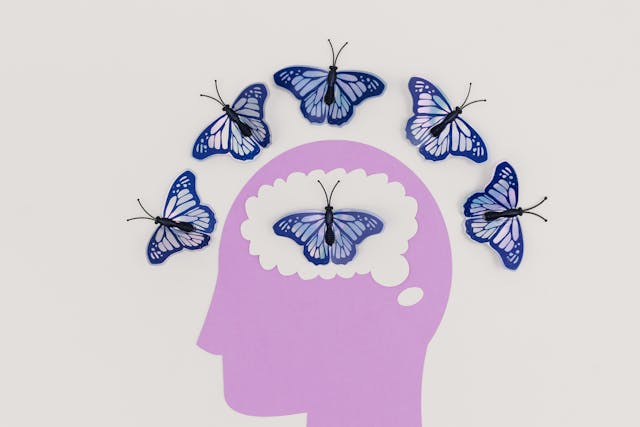Affirmations, the practice of repeating positive statements to oneself, are more than just feel-good mantras. They have a basis in scientific research, showing significant effects on the brain's structure and function. Understanding the science behind affirmations can help us appreciate their potential for personal growth and mental well-being.
The Brain Science Behind Affirmations
I had a moment of awe when I was reading about what I'm about to share. Our bodies and brains are just so complex and beautifully designed! Now, onto the research! Yes, they did a study on how affirmations impact the brain.
Research published by the National Library of Medicine provides fascinating insights into how affirmations affect the brain. When individuals engage in self-affirmation, certain key areas of the brain show increased activity. These areas are associated with self-processing and valuation—how we perceive ourselves and what we value.
- Medial Prefrontal Cortex (mPFC) and Posterior Cingulate Cortex (PCC): These regions are involved in how we process information about ourselves. When we affirm our core values, these areas light up, indicating that our brains are actively integrating these positive statements into our self-concept.
- Ventral Striatum and Ventral Medial Prefrontal Cortex (vmPFC): These areas are linked to valuation, or how we assess the importance of different stimuli. Increased activity in these regions during affirmations suggests that our brains are placing significant value on the positive messages we are repeating.
This enhanced brain activity isn’t just theoretical—it has real-world implications. The same study found that this neural activity predicted changes in behavior. For instance, participants who engaged in self-affirmation showed improved physical activity levels when later encouraged to exercise. This suggests that affirmations can create tangible changes in how we act, supporting healthier, more positive behaviors. How cool is that?!
Understanding the brain's response to affirmations helps explain why they work. Here are key mechanisms:
- Neuroplasticity: Our brains are capable of changing and forming new neural connections throughout our lives. Repeating affirmations can help rewire the brain, creating new pathways that reinforce positive thinking patterns.
- Valuation: The activation of the ventral striatum and vmPFC indicates that our brains assign high value to the positive affirmations. This helps prioritize these positive beliefs over negative thoughts.
Practical Benefits of Affirmations
- Boosting Self-Esteem: By reinforcing positive self-perceptions, affirmations help build self-confidence and self-worth. This can lead to a more resilient and empowered self-view.
- Enhancing Motivation and Performance: When we believe in our potential, as reinforced by affirmations, we are more likely to take action and persist through challenges.
- Improving Mental Health: Consistent use of affirmations can counteract negative thinking patterns associated with depression and anxiety, fostering a more balanced mental state.
Tips for Effective Affirmations
- Be Specific and Positive: Focus on specific areas of improvement and frame affirmations positively. For example, instead of "I will not fail," say, "I am capable and successful."
- Use Present Tense: Phrase affirmations as if they are already true. This helps your brain accept them as current realities.
- Repeat Daily: Consistency is key. Incorporate affirmations into your daily routine, perhaps in the morning with your coffee or tea (that's what I do!) or before bed.
- Believe in Your Words: Engage emotionally with your affirmations. The more you believe in them, the more effective they will be. And even if you don't believe at first, give yourself time. You'll come around.
The power of positive words through affirmations is backed by scientific evidence showing real changes in brain activity and behavior. So now that we know the science behind the effectiveness of using affirmations, what's the harm in using them? Seriously. Try using a few affirmations for 2 full weeks and see how you feel. I'd love to hear your experience! 💜


Leave a comment